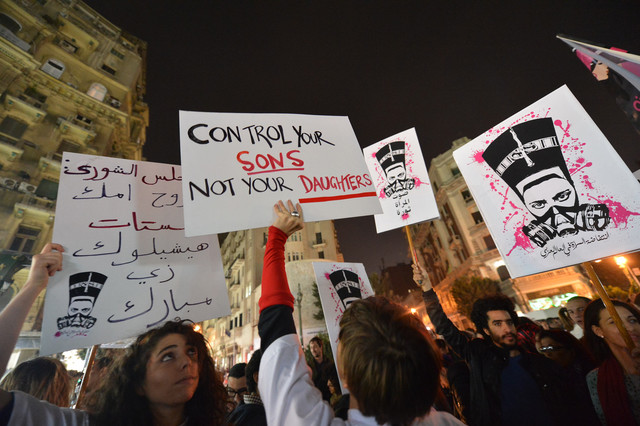Nadine Saleh has spent most of her life wishing that she could walk down the streets of Cairo without fear of being sexually harassed. By the end of 2010, she had all but given up hope. And then came the January 25 revolution. Nadine was 14 years old when her parents first told her that she could not go to the local store in an up-scale Cairo neighbourhood alone. But on January 26 2011, the 21-year-old university student snuck out and headed to Tahrir Square with her best friend. “I realized that the power for change is within us,” says Nadine enthusiastically, “it was time for our voices to be heard.” Despite the passion shown by hundreds of thousands of Egyptians during Egypt’s 18-day revolution, women’s rights have taken a back-seat. Amid recent reports that 83 percent of women in Egypt have been sexually harassed, Egyptian officials have continued to ignore women’s rights. Last week, the Muslim Brotherhood, Egypt’s ruling-party, issued a strongly worded statement, sharply criticizing a UN declaration calling for the end of violence against women and girls. Last month, several Islamist lawmakers, including Adel Abdel Maqsoud Afifi, declared that female…
In the cradle of Egypt’s revolution, women will no longer be silenced
March 28, 2013



